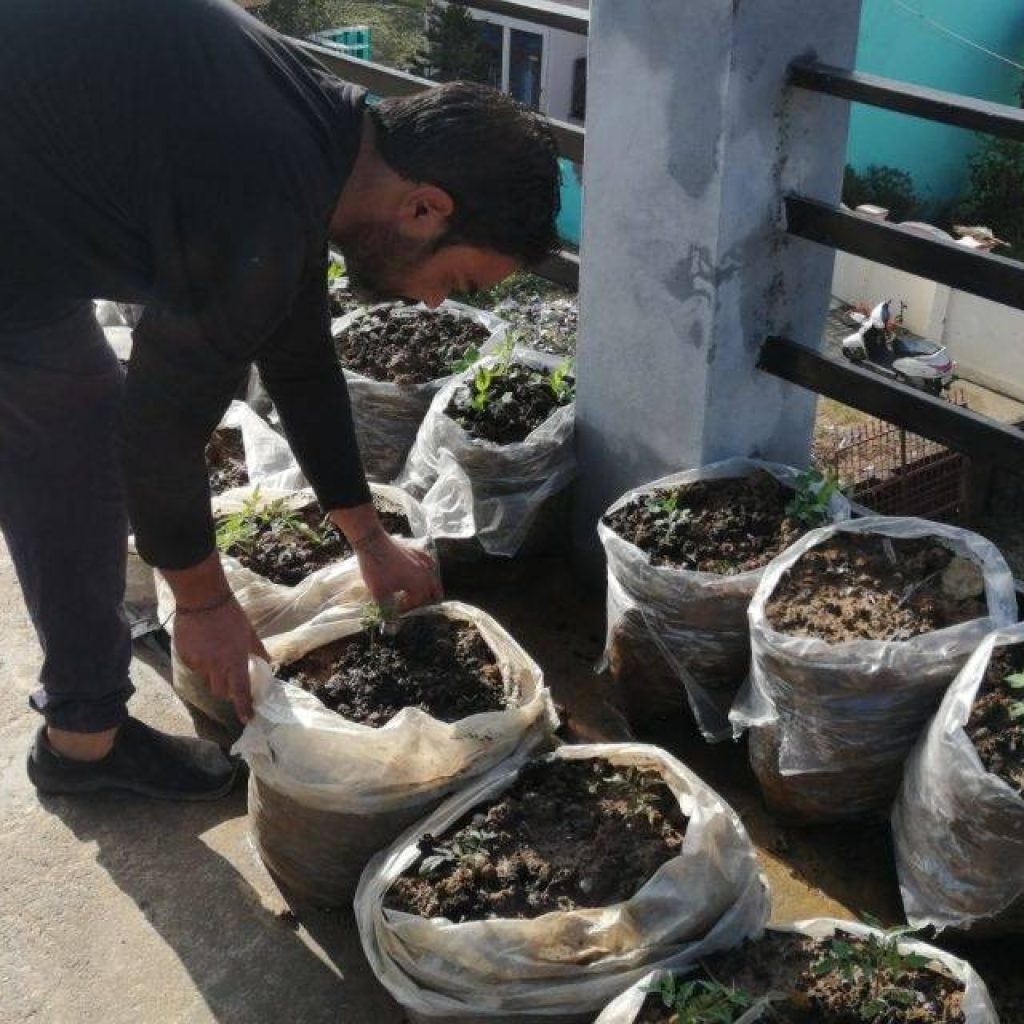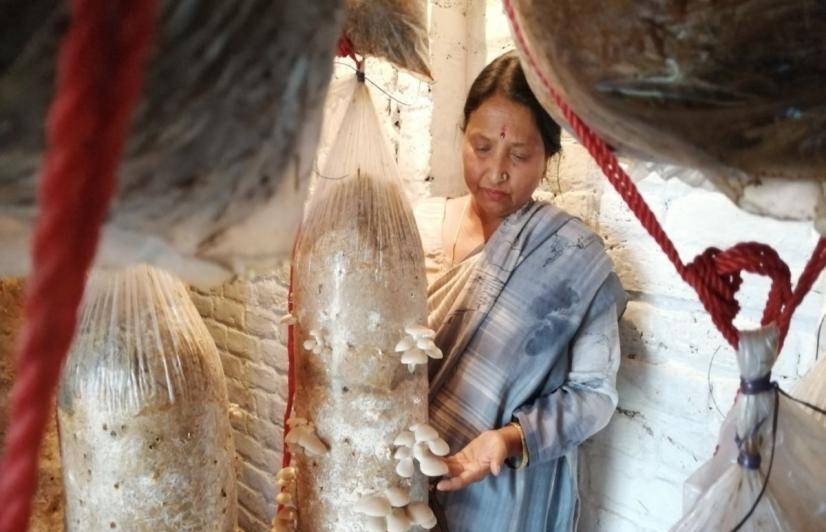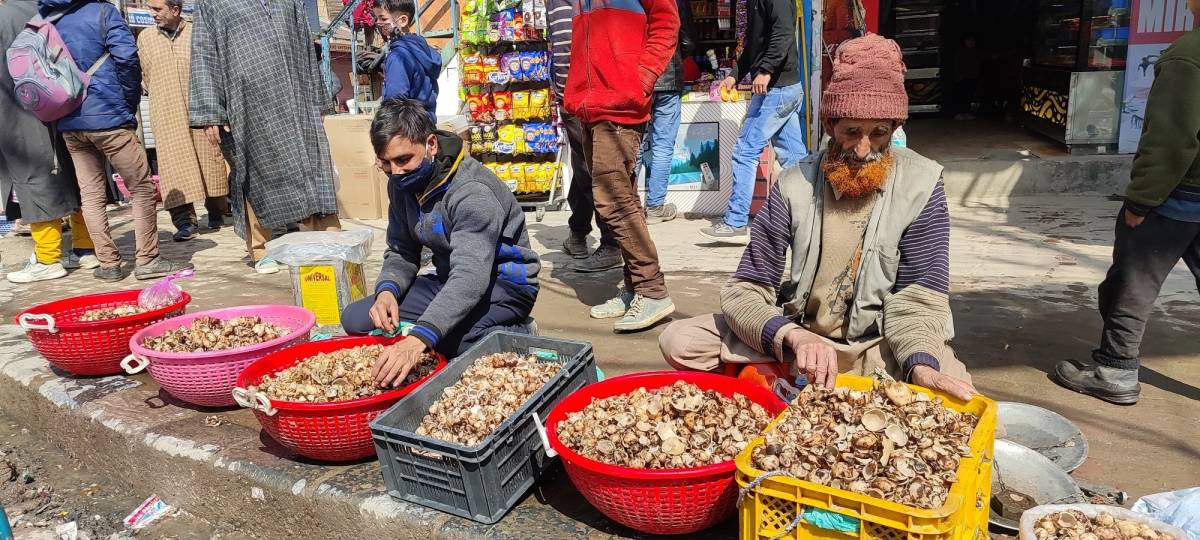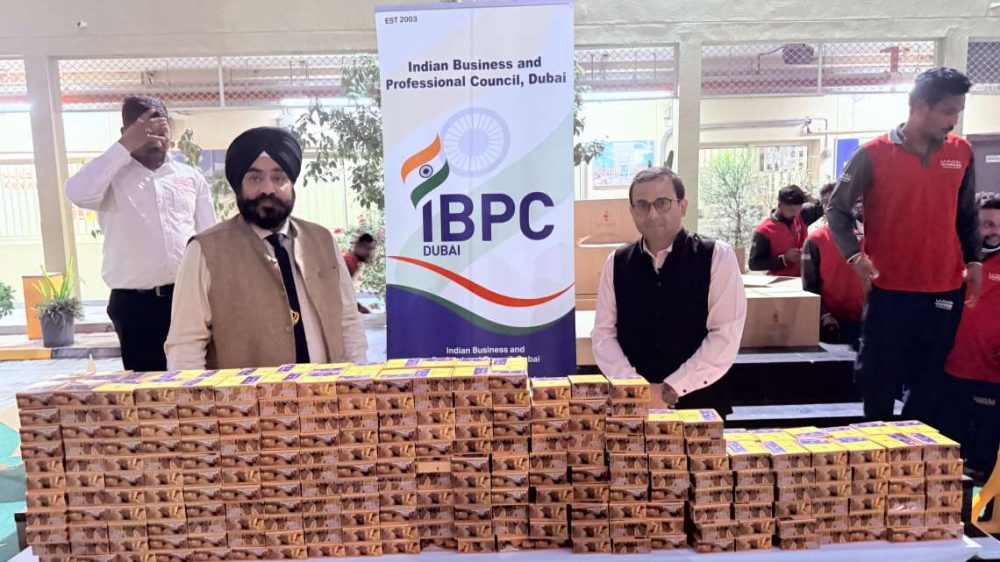After earning double from her first crop, Gupta gradually began to put in more resources, growing button mushrooms using 10 quintals of compost in 2008 and 20 quintals in 2009…reports Bivek Mathur
One fine day in 2007, when 43-year-old Vimla Gupta walked into a government exhibition in Udhampur town in Jammu and Kashmir, little did she know that an idea awaited her — one that would make her an entrepreneur with a multi-lakh business to her name, in the next 15 years.
At the time, Gupta ran a private school and earned a meagre income. Since it was located outside the municipal limits, she could not convince the parents in the rural vicinity to get their wards admitted to her institute, which had a strength of around 50 students.
“I had already decided that I would close down the school and start a new business,” Gupta said, adding that the impetus came from an agriculture department employee, Hans Raj, whom she met at that exhibition.
When Raj found out that Gupta, a member of a self-help group under the National Rural Livelihood Mission, was planning to shut her school, he advised her to start growing mushrooms in its premises.
Mushroom production requires relatively smaller space and fewer resources. Hence, growing the produce at her school- spread over an area of 1 Kanal (or 0.125 acres) – sounded like a reasonable proposition.
Gupta was interested yet cautious. Having no experience in the sector, she continued to run her school but also started growing button mushrooms on the premises by manually preparing 5 quintals of compost.
After earning double from her first crop, Gupta gradually began to put in more resources, growing button mushrooms using 10 quintals of compost in 2008 and 20 quintals in 2009.
A success story paved with challenges
“When we took up mushroom cultivation, in the initial years, we did not know whom to approach to sell our produce. But gradually, we developed market networks and started selling our produce in Udhampur and at sabzi mandis in Jammu,” said Gupta, who now earns around Rs 50,000 per month from the business.
In 2009, Gupta’s son Ramit Gopal quit his job and joined her in this venture, growing 50 bags of oyster mushrooms and button mushrooms.
Cultivating mushrooms from their 14-room school, the mother-son duo has a current output of more than 1,000 bags of oyster mushrooms and over 500 bags of button mushrooms annually, harvesting four crops over the course of the year.
However, writing this success story has been anything but easy for Gupta, who admits it was a huge risk for her to get into this business.
Starting a new unit is easy now, as the current government provides farmers with subsidies, training and other equipment-related support. But in 2007, we only got training and no other help,” she said, adding, “Now, the agriculture department provides us with value addition like marketing and branding.”
A pickle business and plans to expand
Following the roaring success of their business, Gupta and her son are now planning to increase the varieties of mushrooms they grow and their production in the years to come. In 2021, they started a mushroom pickle unit from their home, which helped them earn better dividends.
“We’ve sold only 1.5 quintals of pickle [so far]. From next year onwards, we will increase the quantity of achaar we make,” they said.
The agriculture department has been helping the mother and son with the branding of their pickle. “We’ve established a brand under the name ‘Jammu Kheti’ to help the mother-son duo sell their products, both offline and online,” said Sanjay Anand, Chief Agriculture Officer, Udhampur.
“Our department has also established two farmers’ facilitation centres in Jammu and Udhampur, and are also conducting departmental exhibitions and melas (fairs), where farmers showcase and sell their products directly to the customers.”
Moreover, the regional agriculture division plans to tie up with Amazon as well as government and private commercial stores across India that would help farmers like Gupta earn higher income from the sale of their products in the D2C (direct-to-consumer) segment.
Govt. subsidies in the hope of a ‘Mushroom Village’
Aside from training and other forms of support, the Jammu and Kashmir government has also been providing a 25% subsidy on the purchase of mushroom-growing racks and a 50 per cent subsidy on a fixed number of ready-made bags for first-time mushroom cultivators.
For instance, Gupta and Gopal received a subsidy in 2016-17, when they installed mushroom-growing shelves in their school. It was the same year they closed down their institute.
Anand claimed that Udhampur has seen record growth in mushroom cultivation in the past few years, which had “increased the income of Udhampur farmers” manifold.
“In 2021, we had grown 50,000 to 60,000 bags of mushroom in the town, compared to only 5,000 to 6,000 bags the previous year,” the agriculture officer added. “We’re now planning to name our Neeli Nallah village ‘Mushroom Village’ because most farmers here now grow mushrooms and earn a better income.”
An inspiration for others
“There’s always an opportunity around us. We just need to work with a positive approach to crack that opportunity and wait for the results,” said an optimistic Gupta, the talk of the town who’s now being approached by several aspiring entrepreneurs for help with establishing similar units.

The Jammu and Kashmir government has also been approaching her to train and help others develop their businesses. “I’m leaving no stone unturned to help them,” Gupta said.
One of the many inspired by Gupta is Anju Samailiya (37) from Udhampur. In November 2021, Samailiya visited Gupta’s mushroom unit through the Department of Agriculture. Following proper training through the department’s field functionaries, she agreed to grow 40 bags of button mushrooms and 8 bags of oyster mushrooms on a trial basis. After successfully harvesting her first crop, graduate Samailiya is on track to grow 100 bags of oyster mushrooms and 40 bags of button mushrooms this year.
Similarly, Shambhi Devi (60) from Majori village in Udhampur’s Ramnagar Tehsil is also planning to grow around 50 bags of button mushrooms on a trial basis this year.
“I watched a video on Vimla Gupta’s story on a regional news portal in December last year and then decided to grow mushrooms in the Majori hills,” she said. “So I applied for a 15-day capsule course on mushroom cultivation in January, and now I’m getting trained.”
ALSO READ-TLUK’s Women’s Day celebrations











